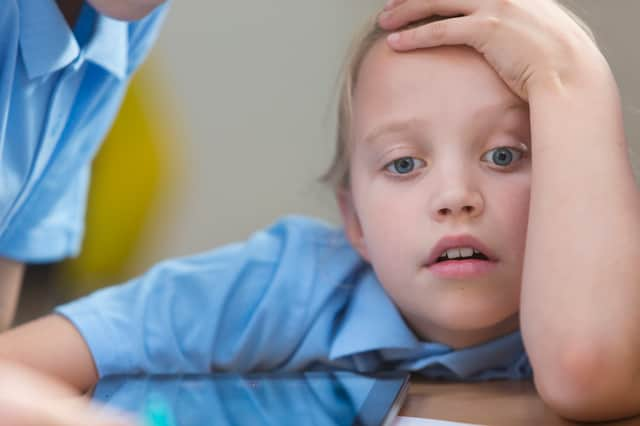More than half of primary school children have unrestricted and unmonitored online access


Children as young as nine are viewing online content not intended for their age group and using social media sites while underage, according to a recent study.
And the situation is taking its toll on primary school teachers, who are having to deal with the consequences of unrestricted and unmonitored online access.
Advertisement
Hide AdAdvertisement
Hide AdOver 300 primary school teachers took part in a survey carried out by lesson planning and resource experts PlanBee, which showed that in two thirds of classrooms, at least five children are regularly tired due to late nights spent online.
Many pupils have underage social media accounts
Respondents, who teach nine to 11 year olds, revealed that many of their students had Facebook, Twitter, Snapchat, Instagram and TikTok accounts, despite the terms of service for most platforms stipulating that users have to be at least 13 or older to sign up.
Three quarters of teachers reported that kids in their classes had YouTube accounts, although some children may be accessing publicly available content from the platform without signing in.
Three quarters of respondents also reported that children in their class were using TikTok, the video-sharing app, which launched in 2017.
Advertisement
Hide AdAdvertisement
Hide AdA majority of teachers said that pupils had accounts for online gaming services. Unlike the other social media platforms in the survey, the three major gaming apps allow parents to create 'sub-accounts' for children, with controls to manage and restrict content.
Alarming numbers of children coming to school tired
Even at primary school, alarming numbers of nine to 11 year olds are coming to school tired due to late nights spent online. These included youngsters who stayed up late watching, reading or listening to content, as well asthose who were playing games.
When teachers were asked how many parents, in their estimation, actively monitored and managed their children's online activity, 67.5 percent said it was fewer than half.